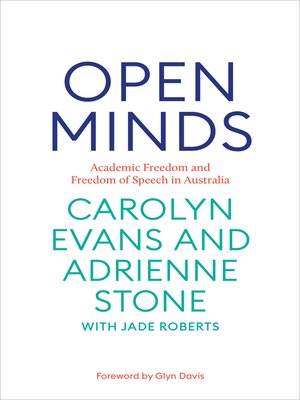
Sign up to save your library
With an OverDrive account, you can save your favorite libraries for at-a-glance information about availability. Find out more about OverDrive accounts.
Find this title in Libby, the library reading app by OverDrive.



Search for a digital library with this title
Title found at these libraries:
| Library Name | Distance |
|---|---|
| Loading... |
Recently the alarm has been raised – basic freedoms are under attack in our universities. A generation of 'snowflake' students are shutting out ideas that challenge their views. Ideologically motivated academics are promoting propaganda at the expense of rigorous research and balanced teaching. Universities are caving in and denying platforms to 'problematic' public speakers. Is this true, or is it panic and exaggeration?
Carolyn Evans and Adrienne Stone deftly investigate the arguments, analysing recent controversies and delving into the history of the university. They consider the academy's core values and purpose, why it has historically given higher protection to certain freedoms, and how competing legal, ethical and practical claims can restrict free expression.
This book asks the necessary questions and responds with thoughtful, reasoned answers. Are universities responsible for helping students to thrive in a free intellectual climate? Are public figures who work outside of academia owed an audience? Does a special duty of care exist for students and faculty targeted by hostile speech? And are high-profile cases diverting attention from more complex, serious threats to freedom in universities – such as those posed by domestic and foreign governments, industry partners and donors?
Carolyn Evans and Adrienne Stone deftly investigate the arguments, analysing recent controversies and delving into the history of the university. They consider the academy's core values and purpose, why it has historically given higher protection to certain freedoms, and how competing legal, ethical and practical claims can restrict free expression.
This book asks the necessary questions and responds with thoughtful, reasoned answers. Are universities responsible for helping students to thrive in a free intellectual climate? Are public figures who work outside of academia owed an audience? Does a special duty of care exist for students and faculty targeted by hostile speech? And are high-profile cases diverting attention from more complex, serious threats to freedom in universities – such as those posed by domestic and foreign governments, industry partners and donors?







